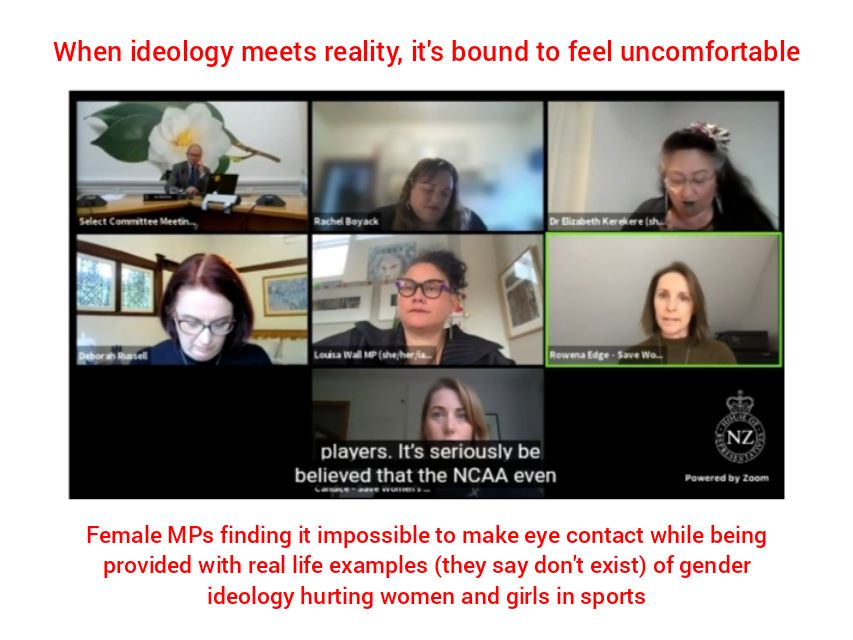And the badly behaved Select Committee members

When Phil Twyford became a Minister following the 2017 election he was given two huge portfolios – housing and transport. It was a good choice. He is a capable man with a significant career before politics. He comes across well on the platform and in the media and in the debates on housing before the 2017 election he easily outclassed every other spokesperson. However the two portfolios got the better of Twyford. He had to work with Labour’s neo-liberal solution to the housing crisis. He fared little better in transport where senior transport leaders seemed to be a lot keener on the National Party’s roads of national significance and a ballooning but unfocussed innovation hub than Labour’s priorities.
Tinetti too appears competent, even if she passed her first term not making rookie mistakes, and therefore not getting into the news. The Births, Deaths, Marriages and Relationships Registration Bill and its self-identification provisions are nothing like Twyford’s big portfolios. The issues are social not infrastructural but when the various gender identity bills pass it could be just as damaging for the government and for Tinetti as Twyford’s failures.
At the last outing in 2018 when there were barely a dozen opponents to the bill it was stopped in its tracks. If anything the atmosphere is now significantly more toxic but those women and men have now multiplied to many hundreds working in multiple scrappy grassroots organisations and there are now thousands more women and men who harbour sincere doubts as to the wisdom of allowing men to be counted as women simply on their say so. Contrary to what the government would like to believe the people concerned about the legislation are largely from the Labour and Green heartlands, and supporters include people from the public sector, academia and the unions. There is also a grassroots rebellion by Māori women who know that there is no evidence for the indigenous concept of gender identity so often cited in support these laws.
The Select Committee hearings for two of the bills are currently underway. As 106,000 submissions to the Conversion Practices Prohibition legislation show, the government’s whole suite of gender identity legislation is raising concerns and the intention to implement the whole lot in a year is inevitably bringing it into focus. The hate speech proposals and the recent news that parents could be criminalised for failing to present their depressed and confused children for gender re-assignment medicine to transition to ‘another gender’ are almost guaranteed vote losers. What parent these days is unconcerned that any denting of their child’s confidence will not lead to the sudden declaration “Mum, I’ve been wanting to tell you. I’m trans”?
If Tinetti is not worried about voices silenced by bullying and fear finally breaking through she should be. New Zealand’s media have not covered any of the gender identity legislation properly for fear of complaints. But people are not silenced forever. In the United States the Association of American Paediatricians (AAP) has been a bulwark for gender ideology. Its support of the kind of gender medicine used in New Zealand for kids is widely cited. Yet, even as very few were prepared to speak openly in opposition when there was a vote 80% of AAP members voted for a review of gender medicine. Inevitably the new standard will involve a step away from the medicalised approach in favour of psychosocial approaches. In similar vein Family First’s NZ polling earlier this year found a large majority across all opinion groups (including Labour and Green supporters) were against teaching young children that if they have a gender identity different from their sex then medication and surgery could fix it.
When the law is passed the Labour government Tinetti will be not only be seen as an enabler of extreme approaches to gender medicine for children but also as holding responsibility every time a transwoman beats a female in sport. When crimes atypical of women are reported as growing rapidly; when women are taken to court for failing to provide intimate services to transwomen; and whenever women in court have to refer as their attacker as “she” concerns about the laws will grow. A claim of being transgender by men charged with serious crimes is becoming commonplace in countries where laws support self-identification. Arguments that the perpetrators are opportunists, and not transgender, while they may be true, will not close the stable door that has been opened.
Meanwhile Tinetti’s Select Committee helpmates are so convinced of their own correct beliefs they were immune to cogent argument about the dangers of the bill and they registered only blank incomprehension when they heard them. Elizabeth Kerekere, Rachel Boyack, Louisa Wall and Deborah Russell may be winning the plaudits of transgender people and their vocal supporters but awareness of their openly partisan attitude towards, and their contemptuous questioning of, submitters sceptical of the proposed law should follow them for the rest of their careers.
Select Committee Recordings
Fast forward to the times below to view them:
Speak up for Women: 3.54
FOWLNZ 4.45
Save Womens Sport: 5.20
<ends>
Jan Rivers is sceptical about New Zealand’s gender identity policy and legislation and has written about the extent of policy capture by gender ideology across government. She will hopefully be presenting to the Governance and Administration Select Committee on behalf of Lesbian Action for Visibility in Aotearoa about the bill.

Latest Comments